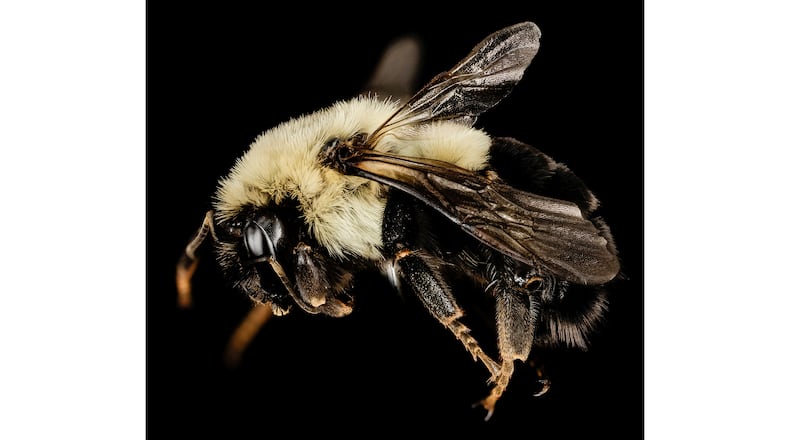Only a few years ago during midsummer, an abundance of bumblebees would be buzzing around lush blooms in yards, gardens and farm fields all over Georgia. The fuzzy-looking bees also would be super busy in old fields and woods and along roadsides, collecting nectar and pollen from the colorful wildflowers.
But those scenes are fading: Bumblebees are in serious trouble in Georgia and nearly everywhere else.
“Many species of (bumblebees) that were once found in certain areas are now reportedly missing and have not been encountered in the past 10-15 years,” according to the University of Georgia Extension Service.
Possible reasons are habitat loss, disease, parasites, pesticide misuse and climate change.
Forty-nine bumblebee species in the United States are known; 17 are found in Georgia. The state’s most commonly encountered species is the common Eastern bumblebee.
Some others, however, have become rare or are missing altogether.
One species, the rusty-patch bumblebee, which lived in Georgia’s mountains, has not been seen for several years and is presumed extirpated in the state. Another native species, the American bumblebee, which prefers farmlands and fields, was once the most abundant bumblebee in the South, but is now considered rare because of plummeting populations.
Georgia needs its bumblebees, which help pollinate the billions of dollars in crops produced in Georgia each year. On many crops, bumblebees are two to four times more effective pollinators per bee than honeybees and solitary bees. Bumblebees also play vital roles in helping native wildflowers and other plants thrive throughout the state.
These are sobering thoughts as folks across Georgia get ready to conduct the Great Southeast Pollinator Census on Aug. 23-24. The results may help scientists determine ways to reverse bumblebee and other pollinator declines. More information: gsepc.org/
IN THE SKY: From David Dundee, Tellus Science Museum astronomer: One of the year’s best meteor showers, the Perseids, will peak at about 50 meteors per hour this weekend and will be visible through Tuesday night — in the northeast after dark. The moon will be first quarter on Monday. Venus is low in the west around dusk. Mars and Jupiter rise in the east about four hours before sunrise. Saturn rises in the east just after dark.
Charles Seabrook can be reached at charles.seabrook@yahoo.com.
About the Author
Keep Reading
The Latest
Featured

